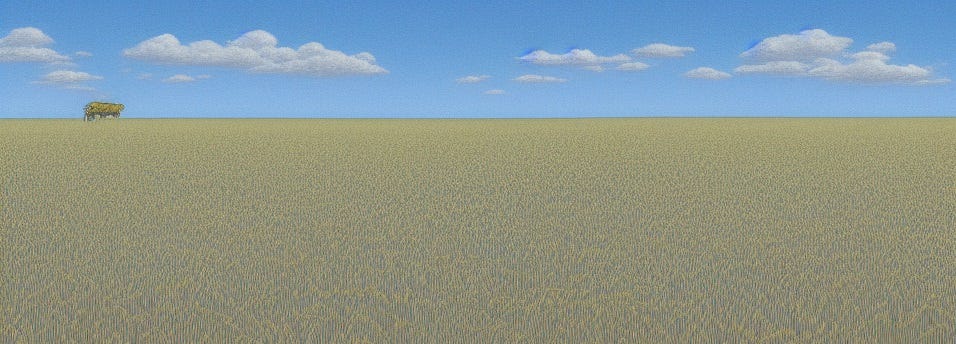🌾 Will the eco-pessimists miss another Green Revolution?
The battle to feed humanity may never end, but human ingenuity keeps winning
Talk about a catchy lede: “The battle to feed all of humanity is over. In the 1970s hundreds of millions of people will starve to death in spite of any crash programs embarked upon now. At this late date nothing can prevent a substantial increase in the world death rate.” Those are the opening sentences of the 1968 eco-pessimist book The Population Bomb, written by Stanford University Professor Paul R. Ehrlich and his wife, Anne Ehrlich.
As Paul Ehrlich was becoming a gloomster celebrity-intellectual over the next decade, it turned out the battle to feed humanity was indeed over, but global famine was the loser. In 1968, the same year as The Population Bomb was published, William Gaud, director of the U.S. Agency for International Development, coined the term Green Revolution: “These and other developments in the field of agriculture contain the makings of a new revolution. … I call it the Green Revolution.” Ehrlich, though, keeps on keeping on, as this 2020 tweet shows:
The “developments” Gaud of the USAID referred to were the creation of high-yielding crop varieties, especially rice and wheat, and more productive agronomic techniques. In 1970, scientist Norman Borlaug, the central figure in the Green Revolution, was awarded the Nobel Peace Prize. From the Nobel committee’s presentation speech:
The world has been oscillating between fears of two catastrophes – the population explosion and the atom bomb. Both pose a mortal threat. In this intolerable situation, with the menace of doomsday hanging over us, Dr. Borlaug comes onto the stage and cuts the Gordian knot. He has given us a well-founded hope, an alternative of peace and of life – the green revolution.
Who could put a number on the amount of suffering prevented by the Green Revolution? Well, economists have given it their best shot. Not only has the Green Revolution prevented maybe a billion starvation deaths since the 1960s, but in the 2021 working paper “Two Blades of Grass: The Impact of the Green Revolution,” researchers find that just a ten-year delay of the Green Revolution would in 2010 have generated a cumulative GDP loss of $83 trillion, or about one year of current global GDP.” From the paper: “Indeed, our results suggest that the investments in the development of [high-yielding varieties of] crops by far have been the most successful form of foreign aid to developing countries in the past half-century.”
Although Borlaug and the Green Revolution made a joke of Ehrlich’s pessimistic prediction, forecasts of overpopulation and mass starvation continue to this very day. I refer you to the World Counts website which offers this ominous counter:
Keep reading with a 7-day free trial
Subscribe to Faster, Please! to keep reading this post and get 7 days of free access to the full post archives.





